2022.09.19
“Rivers, Harmony, Cooperation”: Promote cultural exchanges and protect river ecology for a better life
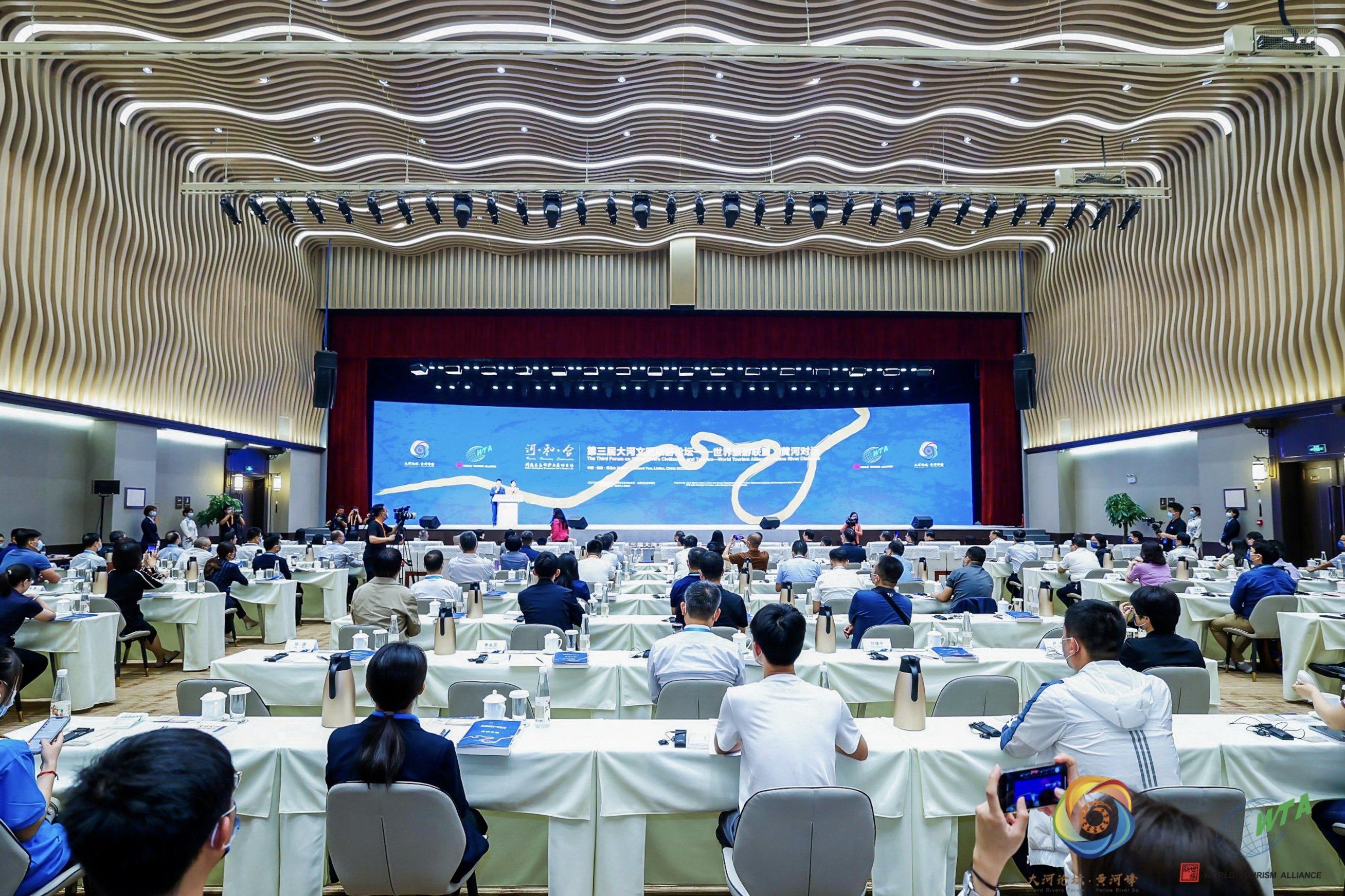
On September 17-19, the Third Forum on Grand Rivers Civilization and Tourism – World Tourism Alliance Yellow River Dialogue cum the Summit of Key Experimental Zones for Ecological Protection and High-Quality Development of the Yellow River Basin was held in Yunqiu Mountain, Linfen in the province of Shanxi. The event was co-hosted by the World Tourism Alliance (WTA), Shanxi Provincial Department of Culture and Tourism, Shanxi Provincial Department of Ecology and Environment, Linfen Municipal Committee of the Communist Party of China (CPC) and Linfen Municipal Government. Shao Hong, Vice Chairman of the National Committee of Chinese People’s Political Consultative Conference (CPPCC) and Executive Vice Chairman of the Central Committee of Jiusan Society, delivered the opening speech and announced the opening of the ceremony. Minister of Ecology and Environment Huang Runqiu, Deputy Party Secretary and Governor of Shanxi Lan Fo’an, and WTA Chairman Duan Qiang attended and addressed the opening ceremony which was presided over by Shanxi’s Vice Governor Zhang Fuming. Other attendees included Wu Wei, a member of the Standing Committee and head of the Publicity Department of Shanxi Provincial Committee of the CPC; Liu Shijun, WTA Secretary-General; Baba Ahmad Jidda, Nigerian Ambassador to China; diplomatic envoys of Bangladesh, Croatia and Egypt; member units of the WTA; experts and scholars as well as representatives of enterprises from provincial regions along the Yellow River. The guests also planted the “seedlings of hope” together at the “Ambassador Forest,” contributing to the green and sustainable development of the Yellow River Basin.
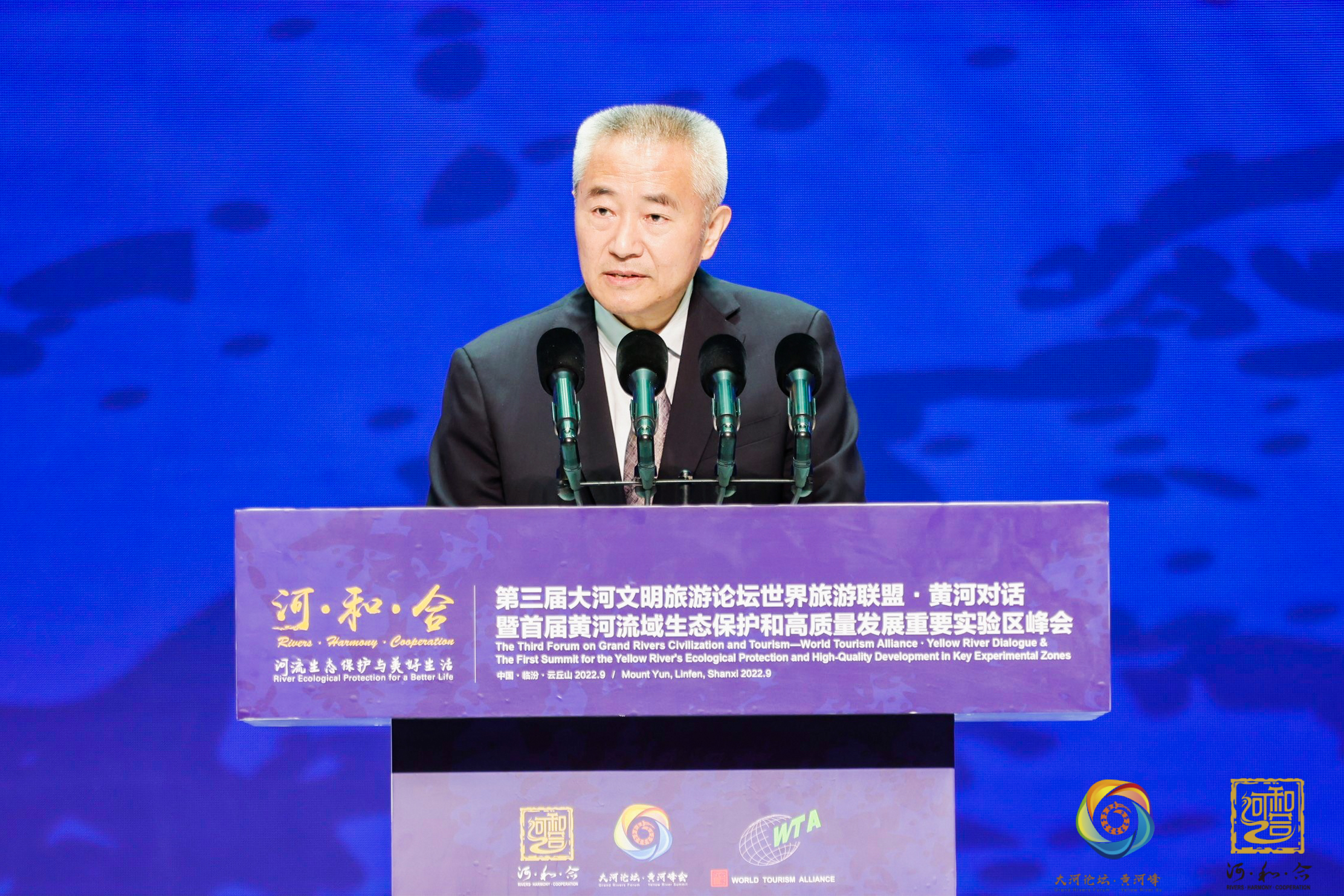 (Shao Hong, Vice Chairman of the National Committee of the CPPCC and Executive Vice Chairman of the Central Committee of Jiusan Society)
(Shao Hong, Vice Chairman of the National Committee of the CPPCC and Executive Vice Chairman of the Central Committee of Jiusan Society)
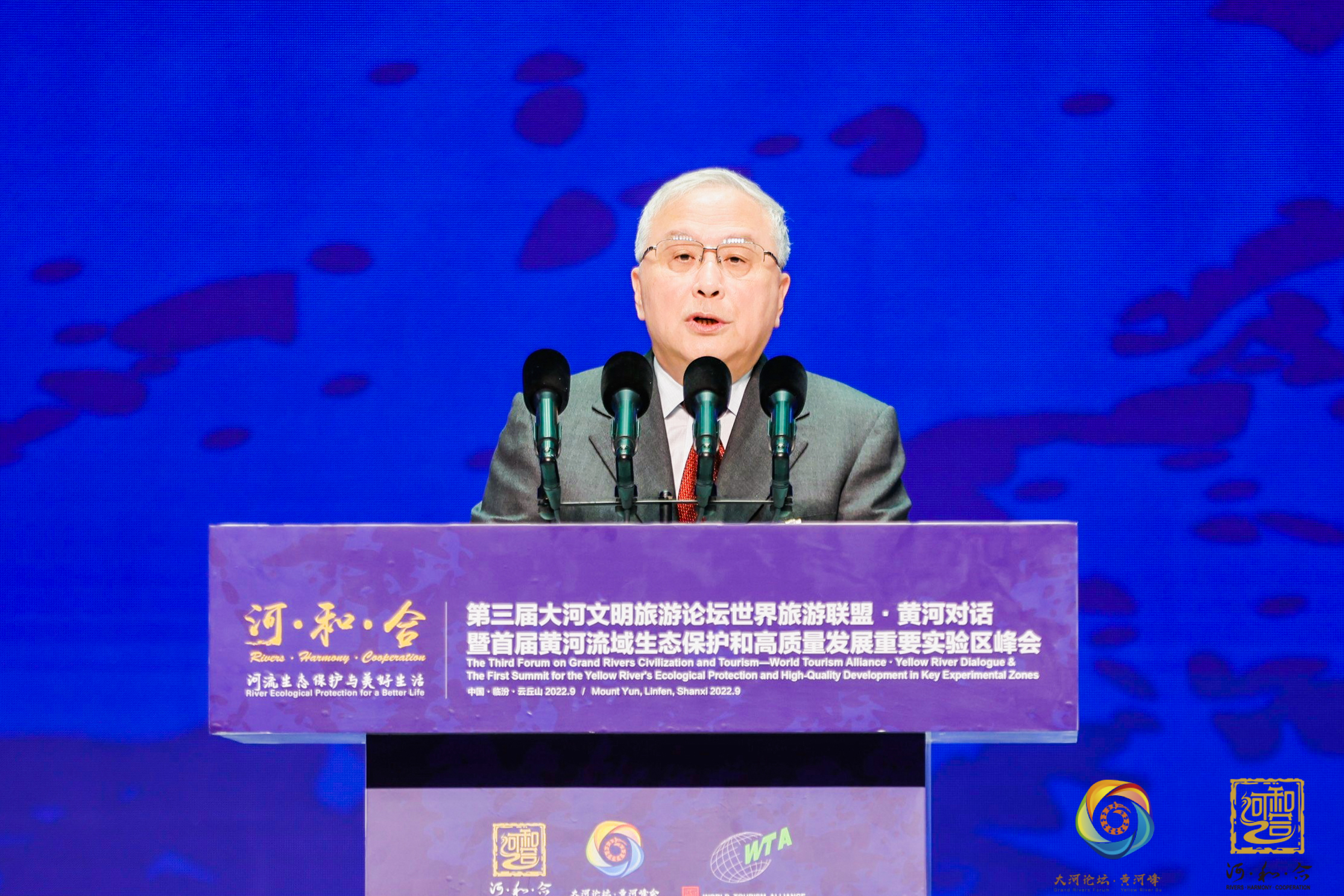 (Duan Qiang, WTA Chairman)
(Duan Qiang, WTA Chairman)
The Third Forum on Grand Rivers Civilization and Tourism – WTA Yellow River Dialogue took place on the afternoon of September 18. Liu Shijun, WTA Secretary-General, and Yan Jianguo, a member of the Standing Committee and head of the Publicity Department of Linfen Municipal Committee of the CPC, attended and addressed the forum which was presided over by Wang Aqin, director-general of Shanxi Provincial Culture and Tourism Department. Under the theme of “Rivers, Harmony, Cooperation – River Ecological Protection for a Better Life,” delegates from the world’s major river basins shared their best practices in resource conservation, innovation-driven development and cultural heritage protection, and contributed wisdom to inherit cultural heritage and promote high-quality development of tourism in major river basins.
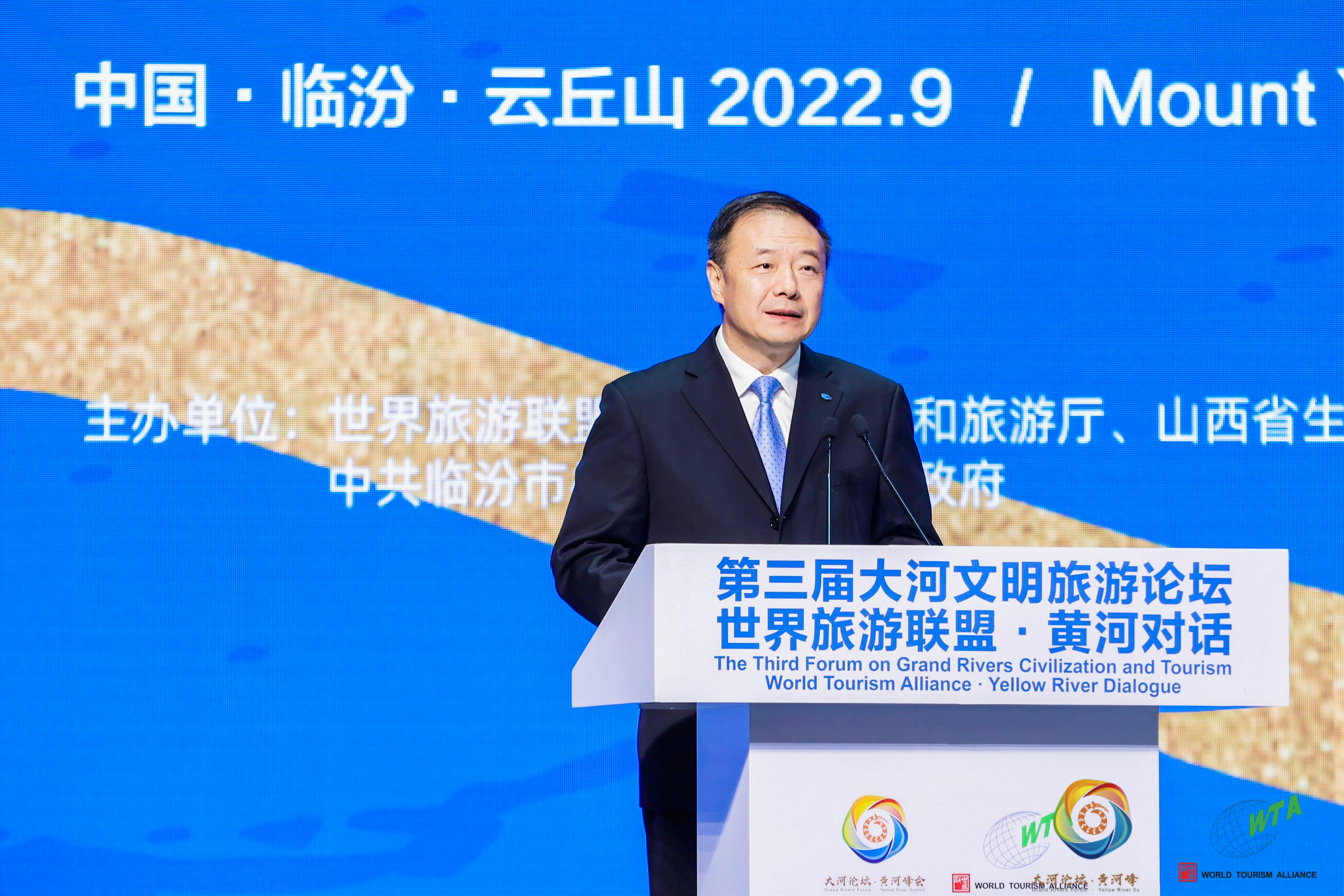 (Liu Shijun, WTA Secretary-General)
(Liu Shijun, WTA Secretary-General)
In his speech, Mr. Liu Shijun said that tourism was a bridge to spread cultures, promote cultural exchanges and enhance friendship. This meeting at the bank of the Yellow River was of great significance to explore and practice the concept of “river ecological protection for a better life.” The WTA would continue to strengthen exchanges and work closely with countries and regions in major river basins of the world, and contribute more to the recovery and development of the global tourism industry, a better life for mankind, and the building of a community with a shared future for mankind.
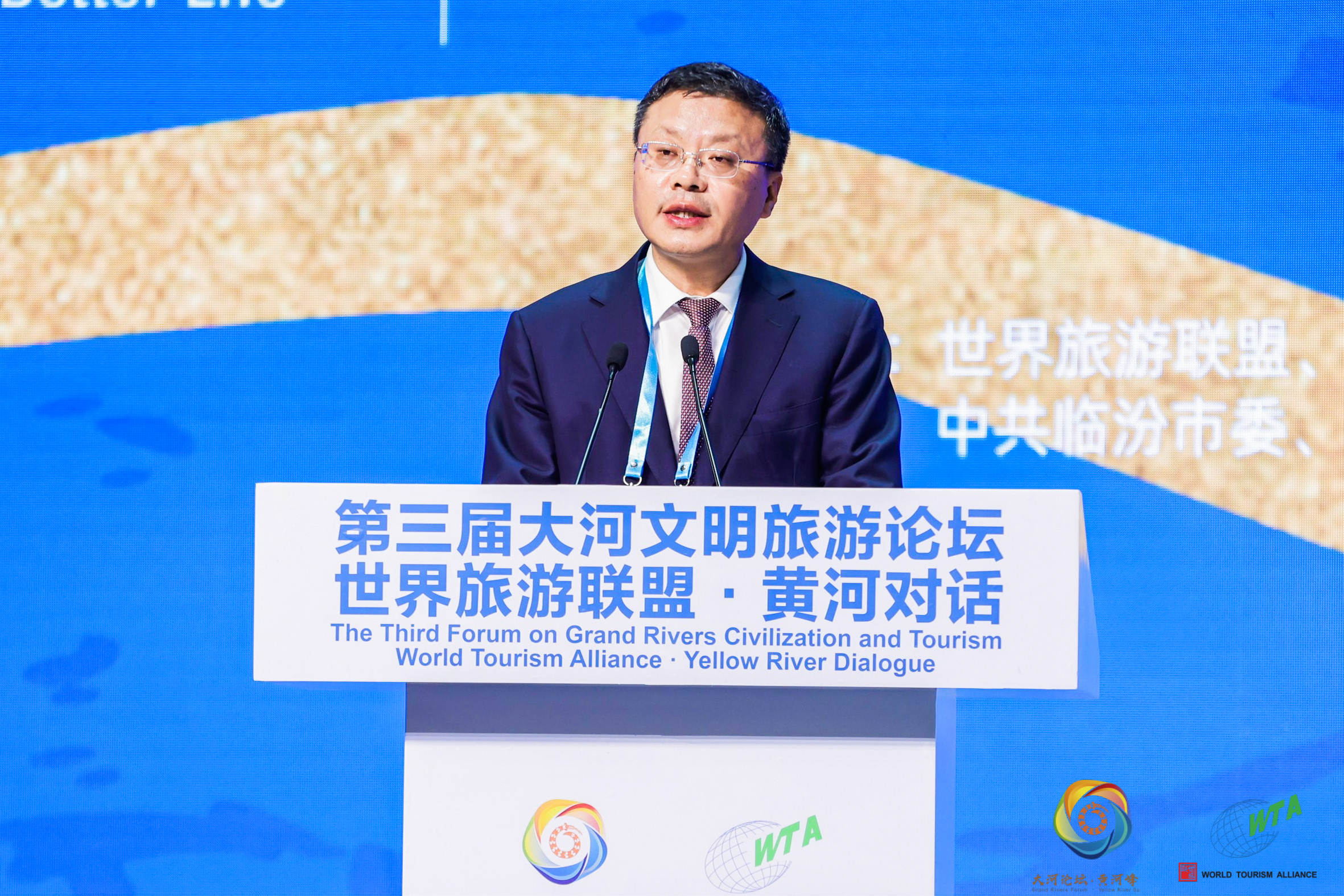 (Yan Jianguo, a member of the Standing Committee and head of the Publicity Department of Linfen Municipal Party Committee)
(Yan Jianguo, a member of the Standing Committee and head of the Publicity Department of Linfen Municipal Party Committee)
Mr. Yan Jianguo mentioned that the WTA Yellow River Dialogue was a concrete measure to deeply implement Chinese President Xi Jinping’s instructions on ecological protection and high-quality development of the Yellow River Basin. Linfen will rely on the Yellow River and its culture, focus on development, and continue to learn from other cultures to promote harmony, integration and win-win cooperation.
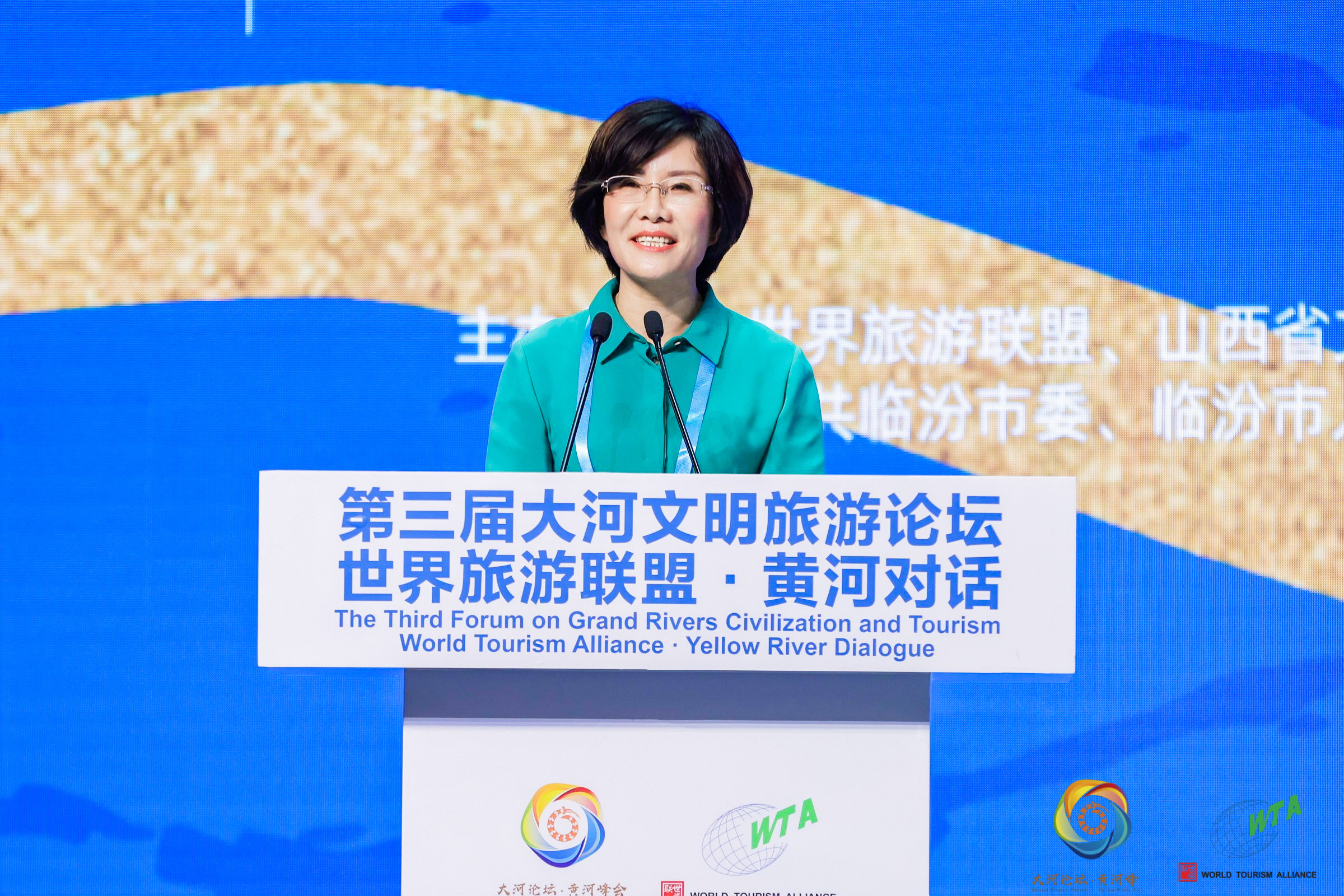 (Wang Aqin, Director-General of Shanxi Provincial Department of Culture and Tourism)
(Wang Aqin, Director-General of Shanxi Provincial Department of Culture and Tourism)
While presiding over the forum, Ms. Wang Aiqin said that with the strong support of all parties concerned, the Yellow River Dialogue was seeing its international influence increasing, and Shanxi would continue to exchange and cooperate with all stakeholders to burnish its reputation as a tourist destination with profound cultural heritage.
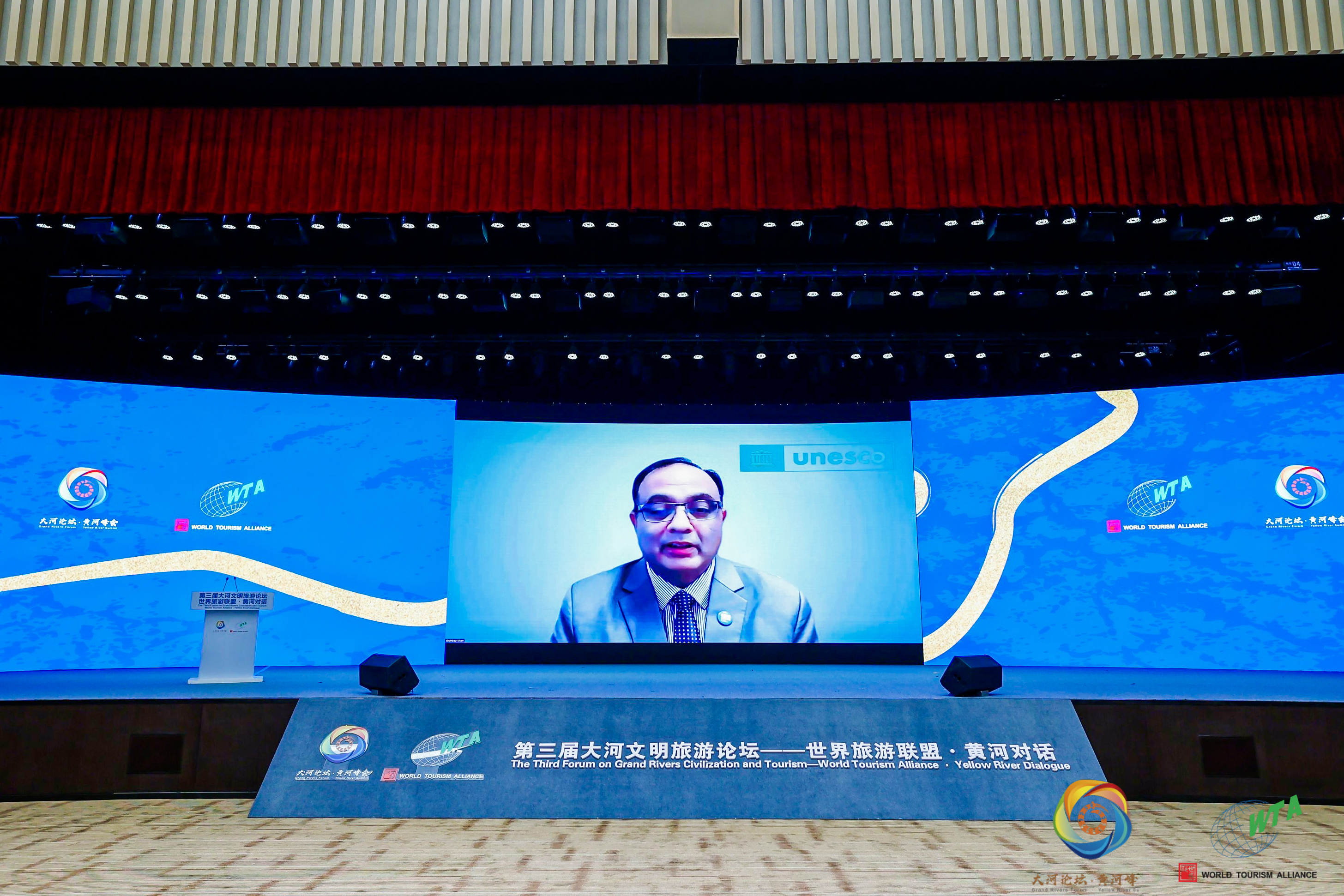 (Prof. Shahbaz Khan, UNESCO Representative to China)
(Prof. Shahbaz Khan, UNESCO Representative to China)
Prof. Shahbaz Khan made a keynote speech via video link on the topic “The Communication and Mutual Learning between Major River Basins and World Civilizations.” He praised the tremendous ecological benefits China’s river-chief system had yielded in restoring the river ecosystem. In light of the UNESCO Intergovernmental Hydrological Programme, he stressed the importance of bridging the gap of data and knowledge for integrated water resources management, and the need to strengthen water education and promote cultural exchange between different river basins.
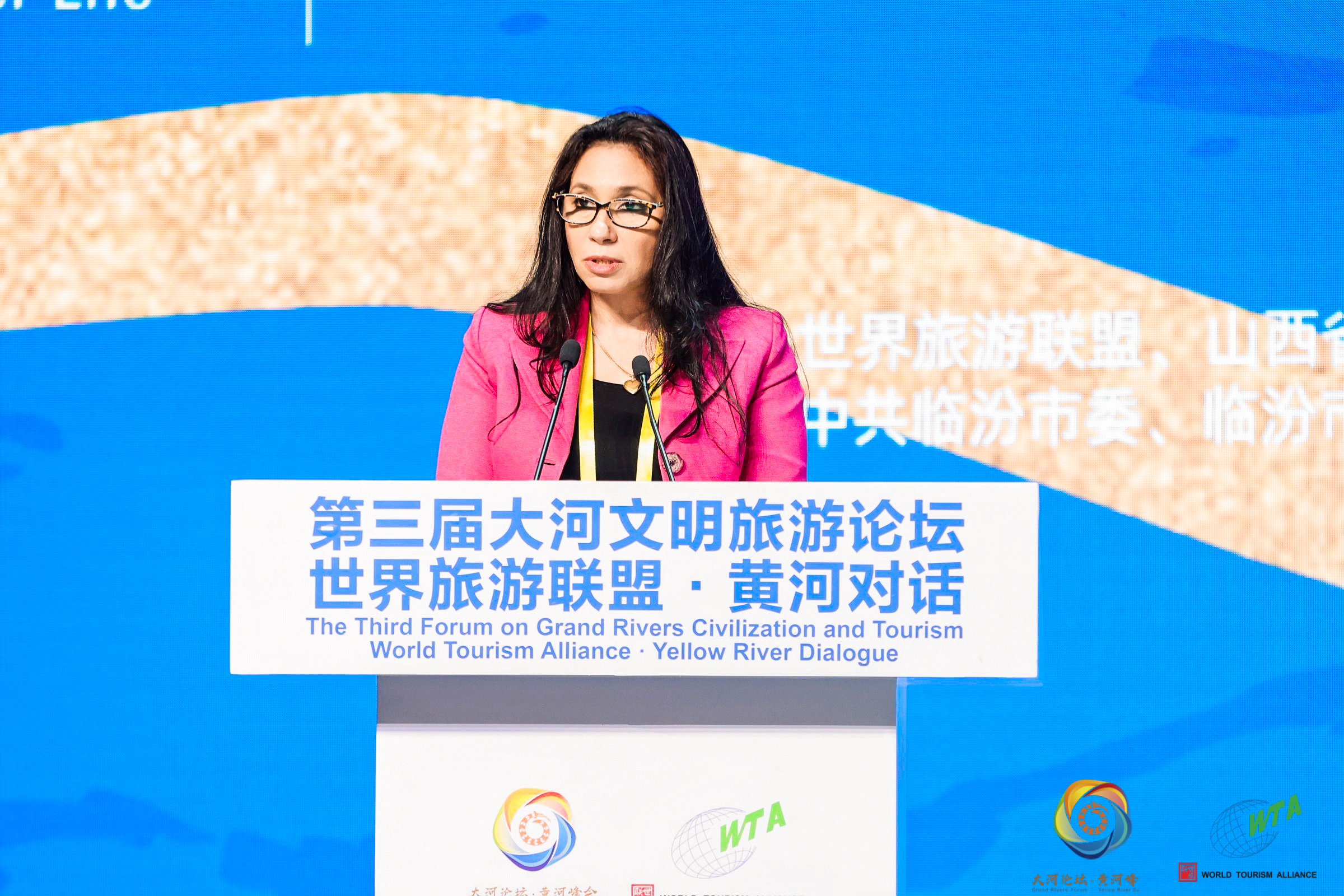 (Naglaa Naguib, Chargé d’Affaires, Embassy of the Arab Republic of Egypt in China)
(Naglaa Naguib, Chargé d’Affaires, Embassy of the Arab Republic of Egypt in China)
Ms. Nahra Najib delivered a keynote speech on the theme of “Rivers in Cooperation Together Towards Prosperity.” She mentioned that Egypt and China shared a common vision and interests in protecting rivers in response to challenges such as climate change and environmental pollution, and should share their river management philosophy and practices and jointly shoulder the responsibility to protect rivers.
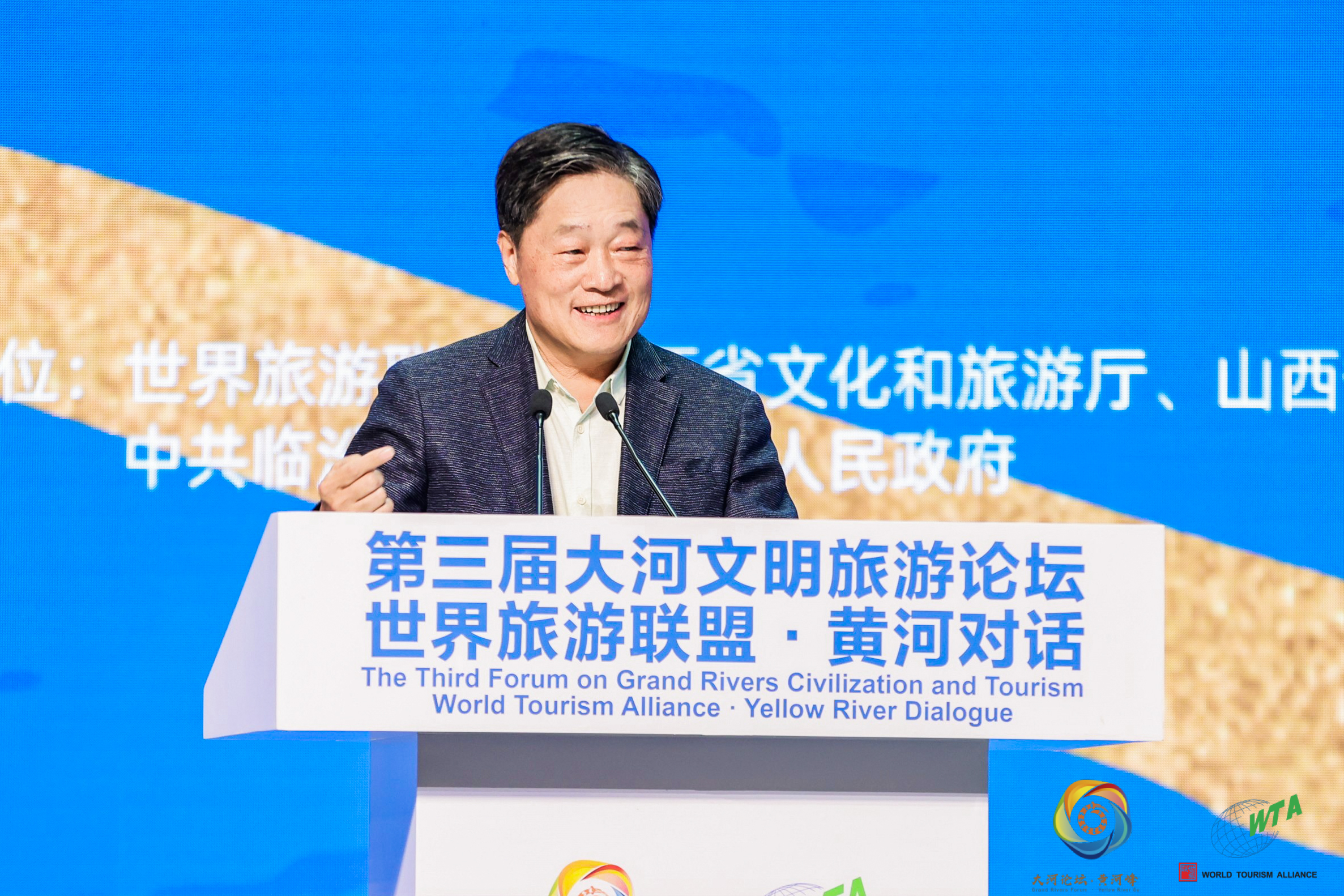 (Xiong Zhaozheng, a famous Chinese poet, writer and historiographer)
(Xiong Zhaozheng, a famous Chinese poet, writer and historiographer)
In his speech entitled “Rivers Are the Cradle of Civilizations,” Mr. Xiong Zhaozheng reviewed the works of literati and literary classics in ancient China, and explained the interplay between man and the Yellow River, Chinese civilization and the Yellow River. He believed that the Yellow River gave birth to the splendid Chinese civilization, and the Yellow River Dialogue was good for cultural development and should carry on for a long time to come.
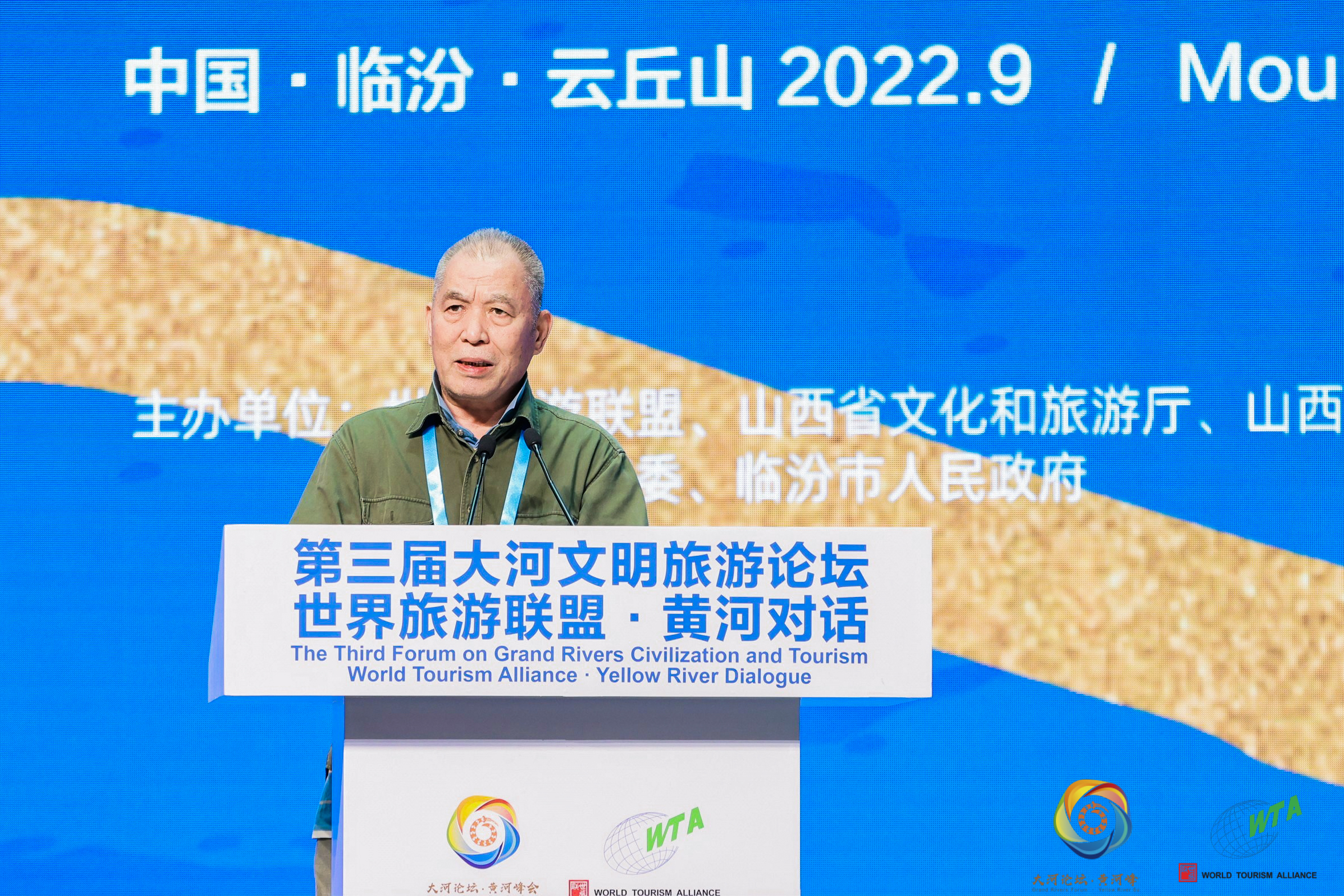 (Liang Xiaosheng, a famous Chinese writer and playwright)
(Liang Xiaosheng, a famous Chinese writer and playwright)
Liang Xiaosheng delivered a keynote speech entitled “The Grand River Civilization (Yellow River Culture).” He summarized the relationship between humanity and water with the following keywords: “survival, production, and life,” and water bore heavily on “agriculture, rural areas, and farmers.” Protecting the ecological environment of the Yellow River is the prerequisite for a good and happy life.
 (Wu Bihu, Professor of Peking University, Fellow of International Tourism Studies Association)
(Wu Bihu, Professor of Peking University, Fellow of International Tourism Studies Association)
Prof. Wu Bihu gave a speech titled “The Yellow River as a Cultural Region and Cultural Route: Identity and Differentiation.” He said that major rivers in different regions of the world have bred different cultures which show both continuity and differences. Take the Yellow River, the mother river of China, for example. The cultures in the nine provincial regions along it are distinct in their own way and integrated with each other. We should seize the opportunity of building the Yellow River National Cultural Park to develop tourism in the river basin and promote cultural inheritance and exchange.
 (The Unity Sand Ceremony)
(The Unity Sand Ceremony)
 (Panel discussion)
(Panel discussion)
At the panel discussion, Bisera Fabrio, Charge d’Affaires of the Croatian Embassy in China, Yao Yanbo, Professor, PhD supervisor and Associate Dean of the College of Tourism and Service Management of Nankai University, Ge Shuiping, President of Shanxi Federation of Literary and Art Circles, Du Xuewen, President of Shanxi Writers Association, and Wang Shan, Executive Vice President and Secretary-General of the Poetry Institute of China, exchanged ideas in-depth on the topic “Civilization is Colorful Because of Communication, Civilization is Enriched by Mutual Learning,” shedding light on how to build the Yellow River cultural and tourism belt with international influence.
As the ecological conservation drive is in full swing in China, the theory that lucid waters and lush mountains are invaluable assets is popular and the people living along the Yellow River are yearning for lusher mountains, cleaner water, bluer sky and more pollution-free land, creating opportunities for the development of the Yellow River Basin. The WTA will continue to give full play to its advantages as a platform for international and domestic exchanges and cooperation, and join hands with countries located in major river basins in the world to jointly promote regional cooperation in culture and tourism development, build a cross-regional government-led cooperation mechanism that involves multiple stakeholders including market and social forces, and lets the culture of the Yellow River and other major rivers in the world shine brilliantly again in the new era.